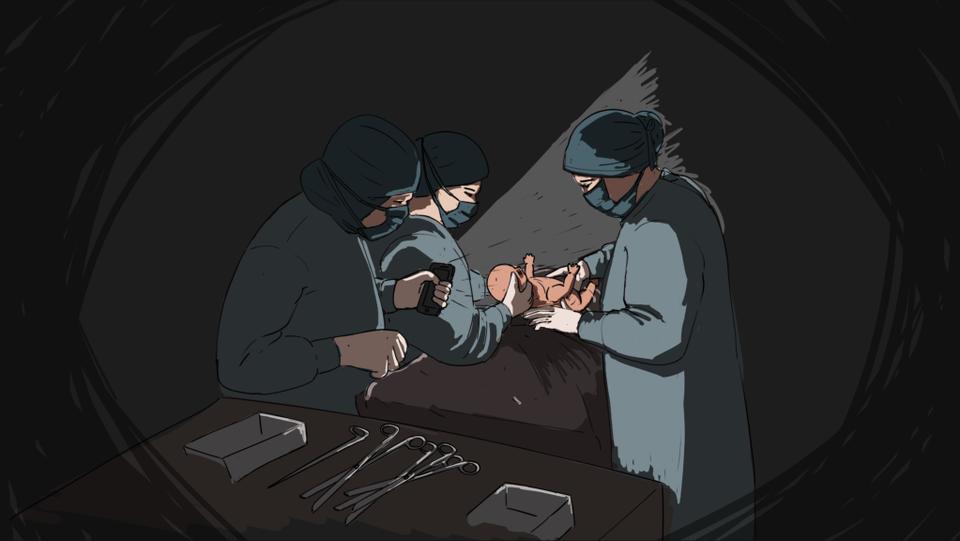With meagre funding and lack of resources, one maternity hospital has turned to cellphones to perform C-sections and routine deliveries.
The power is off and there isn’t enough fuel to run the generators full-time, but at the Malik Mohammed Khan hospital in Maidan Wardak province, the obstetrics unit has to keep delivering babies.
Head obstetrician Mariam Shirzai Wardak is determined, but anxious about the future, worrying constantly about how long they will be able to keep going.
A valid worry in a country that has been isolated since August, when the Taliban took power and the international community froze all aid and its assets abroad.
The unit has no sterile gloves or pain relief medication - and patients admitted for C-sections have to bring their own fuel to run the generator long enough for the anesthesia to work.
If they can’t afford it, someone from the hospital usually volunteers to pay for it.
But the generators can’t run the operating theatre lights at the same time. So for C-sections and routine deliveries, the doctors use cellphone flashlights.
But how long can a cellphone battery last?

Patients also have to bring their own supplies like gauze, scalpels and sterilising fluids from pharmacies; a cost of up to AFG 2000 ($26) in case of C-sections.
Dr Shirzai says the situation is a “living nightmare”.
An uneasy future
Since the Taliban takeover in August, international donors stopped all funding.
The United States froze nearly $10 billion in Afghan government assets held by the Federal Reserve - ostensibly to press the Taliban to meet demands including rights for women, girls and minorities.
“Since the Taliban took over, things have gotten worse in terms of health aid and medicines and there is a tremendous decrease in the equipment we need for surgery,” Dr Shirzai told TRT World.
“With no international aid, it is getting increasingly difficult to manage child births.”
Before the Taliban took over, 70 to 80 percent of the government budget was funded by international donors.
The hospital previously relied on assistance from the Swedish Committee for Afghanistan (SCA), an international non-profit organisation.
That funding has stopped.
There are assurances that the World Health Organization is stepping in to provide funding for basic necessities and to pay hospital staff from November to January, according to Dr Shirzai, but has not been confirmed by the WHO.
But what will happen after that remains unclear.
Before the WHO pledged this support, many of the medical staff had not been paid for months.
Afghanistan’s banking systems are also under severe strain from the sanctions, leading to banks setting weekly withdrawal limits to stop a run on deposits.
“The bank doesn't pay us all at once, I need to go to the bank every week and stand in line for my turn. I don’t have that much time as patients wait desperately for me back at the hospital,” she said.
Without immediate support for maternity health, the UN Population Fund estimated that Afghanistan could be facing 51,000 additional maternal deaths.
Newborns and nursing mothers are also at a heightened risk of succumbing to malnutrition this winter as the country is going through one of the world’s most acute food crises.
“The situation is now unimaginable. The health crisis sweeping the country means many women are being forced to give birth at home, with little to no medical supervision,” Thomas Howells, Save the Children’s acting country director said.
“No child or mother should die from preventable causes.”
Dr Shirzai warns that if the current situation continues, thousands of Afghans will die, leading to the world’s worst humanitarian catastrophe.
She stresses on the international community to act.
“Why are these innocent people getting punished? she asks.















0 Comments